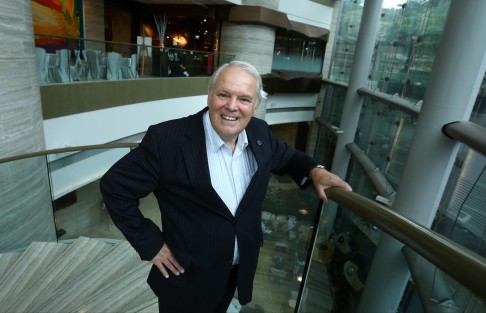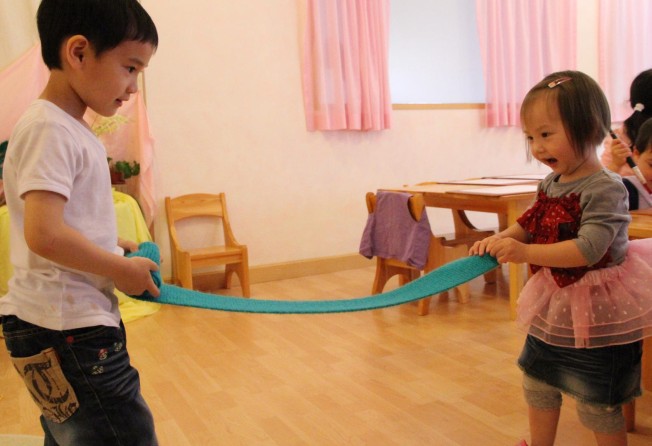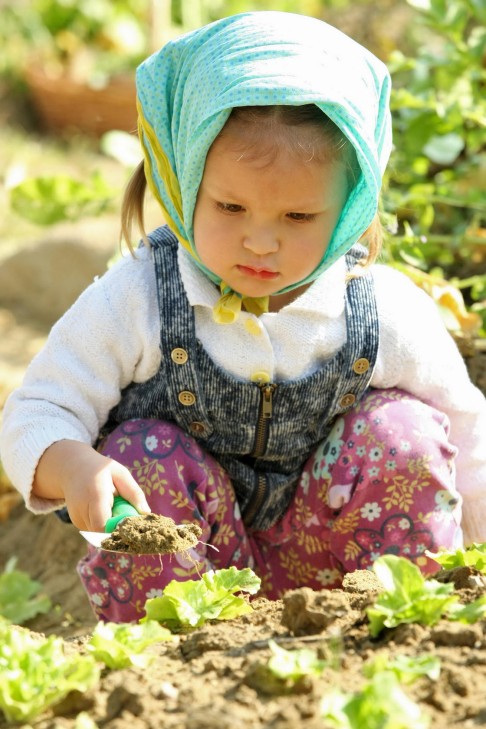
The Hong Kong parents choosing to let kids enjoy being kids
Some families have opted out of the pressure-cooker school system, blamed for child health problems including depression, in favour of the creative and hands-on learning offered by the Waldorf teaching method of Rudolf Steiner

“We watched people we know with young children preparing portfolios, having their children assessed and planning exams even before they entered kindergarten and thought to ourselves: when do our children have the chance to enjoy their childhood?"
So says Philip Heung, a father of two young daughters and a member of the board of trustees of what will soon be Hong Kong’s first fully operational primary school using the Waldorf hands-on early learning method pioneered by famed educator Rudolf Steiner.
Christof Wiechert, who spent more than 30 years teaching in the Waldorf system in Europe, says: "Instead of learning for the sake of passing exams, the Waldorf system is designed to engage all the senses and build up logical analysis, which helps to arouse curiosity."
The Hong Kong Waldorf school, Forest House in Clear Water Bay, will initially offer three classes for children aged from six to nine years old when it opens in September and will accommodate about 30 students, says Cannie Bennett, another member of the board of trustees and the founder and director at Garden House Pre-school and Kindergarten, which has offered the Waldorf early-learning education for a number of years.
"We will add an additional class each year so children can remain within the Waldorf system," said Bennett, who reveals the long-term plan is to offer an education stream that will take children from kindergarten to university.
With former vice-principal of the Diocesan Boys' School Mark Rosario as principal, Bennett says Forest House will provide a balanced approach to the modern school curriculum.
Wiechert, a former leader of the pedagogical section at the Goetheanum in Dornach, Switzerland, says the importance of getting education right cannot be overestimated. Children subjected to today's pressure-cooker education environment, including Hong Kong's famously test-driven learning culture, risk suffering from burn-out and damaging their health, he says. The pressure placed on children during early childhood and through the teenage years can leave them physically and emotionally strained, disengaged and depressed, Wiechert says, and points to research evidence that links the pressure placed on children at school and by parents to behavioural problems and learning difficulties.
"Statistics globally point to a dramatic rise in the level of childhood depression over the course of a generation," he notes. "Sadly, we see an increase of children struggling to relate to their families and the world around them."

The Waldorf method places emphasis on a holistic approach while protecting children from some of the stresses of modern life.
Developed by Rudolf Steiner in 1919 in Stuttgart, Germany and named after the Waldorf-Astoria Cigarette Factory where the first lessons were taught, the Waldorf education system focuses on early childhood learning experiences characterised through creative learning and hands-on tasks.
Through baking, painting, gardening and handicrafts, children learn mathematics and science and develop their language skills, but without exams. At primary-school level, subjects are linked with interconnected lessons that often span several weeks to help children understand how knowledge is interrelated. Wiechert says the secondary-school curriculum is structured to foster students' intellectual understanding, independent judgment, and ethical ideals such as social responsibility.
"Instead of learning for the sake of passing exams, the Waldorf system is designed to engage all the senses and build up logical analysis, which helps to arouse curiosity," says Wiechert, who spent more than 30 years teaching in the Waldorf system in Europe.
"Whether they choose the world of commerce and business, the public sector, or the arts, Waldorf education prepares young people to step into the world with confidence, carrying a lifelong love of learning and appreciation of the world around them," says Wiechert, adding these are skills that many employers say they are looking for.
Norway's former prime minister Jens Stoltenberg, who went on to become the secretary general of Nato, is a former student of the Oslo Waldorf School. The actresses Jennifer Aniston and Sandra Bullock are also Waldorf graduates while Harrison Ford, Clint Eastwood and Star Wars director George Lucas all sent their children to Waldorf schools.
While some education experts advocate the push to equip classrooms with computers as the way to hold students' attention, Wiechert believes a sparing approach to the use of technology is important to protect children from the stresses of modern life, stresses that include overuse or misuse of technology such as television, computers, and smartphones.
It is more about using technology wisely, and not letting it spoil creativity
"It is not the case we are against technology. It is more the case of using technology wisely and not letting it spoil creativity," says Wiechert, who was in Hong Kong as part of his work travelling the world making presentations at conferences, conducting teacher and parent education workshops and visiting schools.
Wiechert mentions a technology-free Waldorf school in the US, located midway between the Apple and Google headquarters where tech engineers from Silicon Valley giants Google, Apple, Yahoo and Hewlett-Packard and the chief technology officer of eBay send their children. Google communications officer Alan Eagle, whose daughter attends the school, recently told The New York Times: "The idea that an app on an iPad can better teach my kids to read or do arithmetic … that's ridiculous."
Wiechert also points out that when the late Steve Jobs was asked by technology journalist Nick Bilton what his children thought of the iPad 2 before its 2011 unveiling, he replied: "They haven't used it. We limit how much technology our kids use at home."
Today there are about 1,200 Waldorf schools around the world - including several Waldorf schools in Taiwan that are government funded. Wiechert says one of the fastest-growing areas for Waldorf schools is in China. "Parents from China's middle class looking for an alternative to state schools are sending their children to Waldorf schools in Guangzhou, Zhuhai, Chengdu and Beijing," Wiechert says.

Philip Heung, trustee of Hong Kong’s first Waldorf-method primary school, says the single biggest motivator that persuaded him and his wife to choose the Waldorf system for their two young daughters is doing what is best for the children. Fellow trustee Cannie Bennett, though, acknowledges the Waldorf education system will not fit every parent's education plans for their children. She says even though a child may not be enjoying school life in a traditional system, there are a lot of parents that find it hard to take their foot off the education accelerator pedal.
She says she is frequently asked what happens if a family needs to leave Hong Kong and children need to enter a more traditional education system. It’s not a problem,she says. "Children who join a different school adjust very quickly, and in some cases in certain academic areas are actually ahead of their classmates."